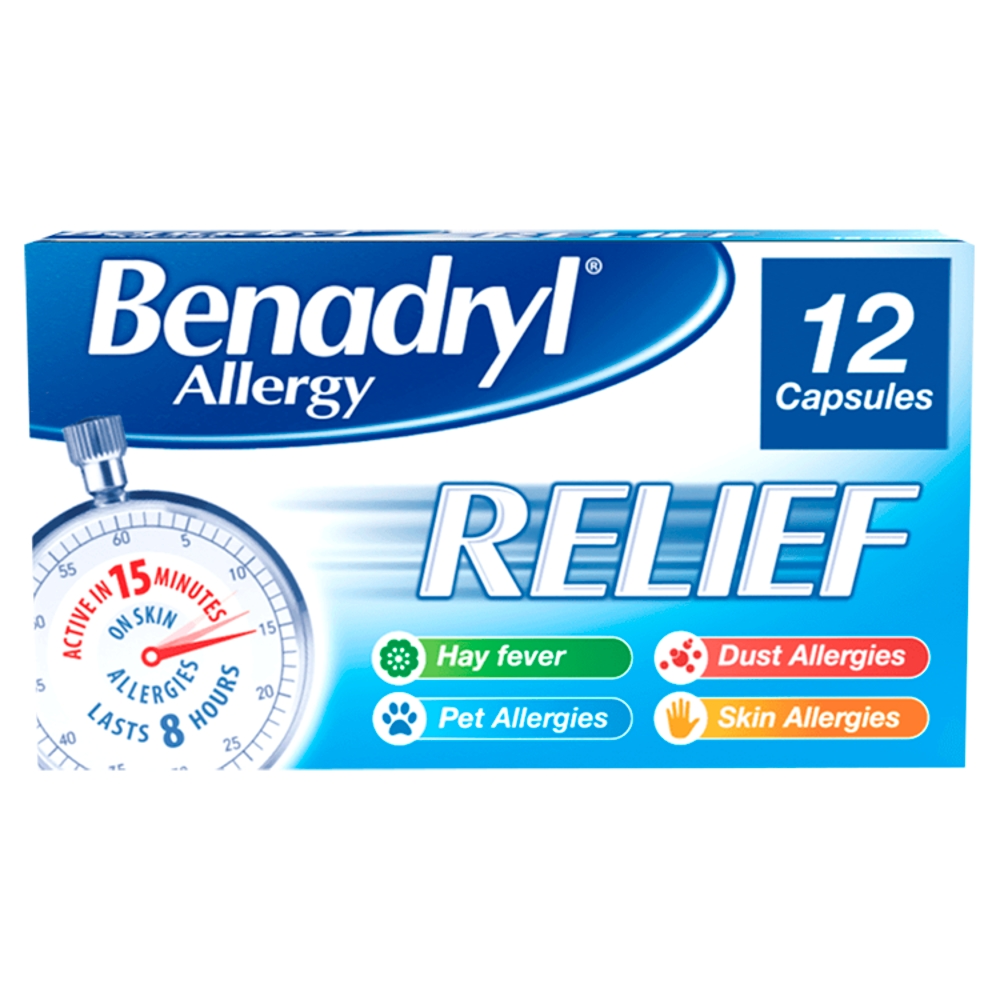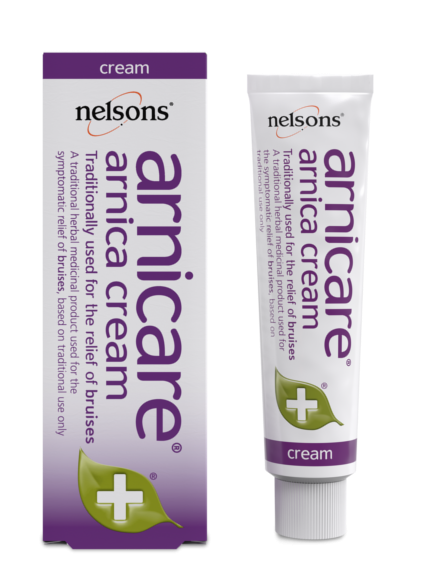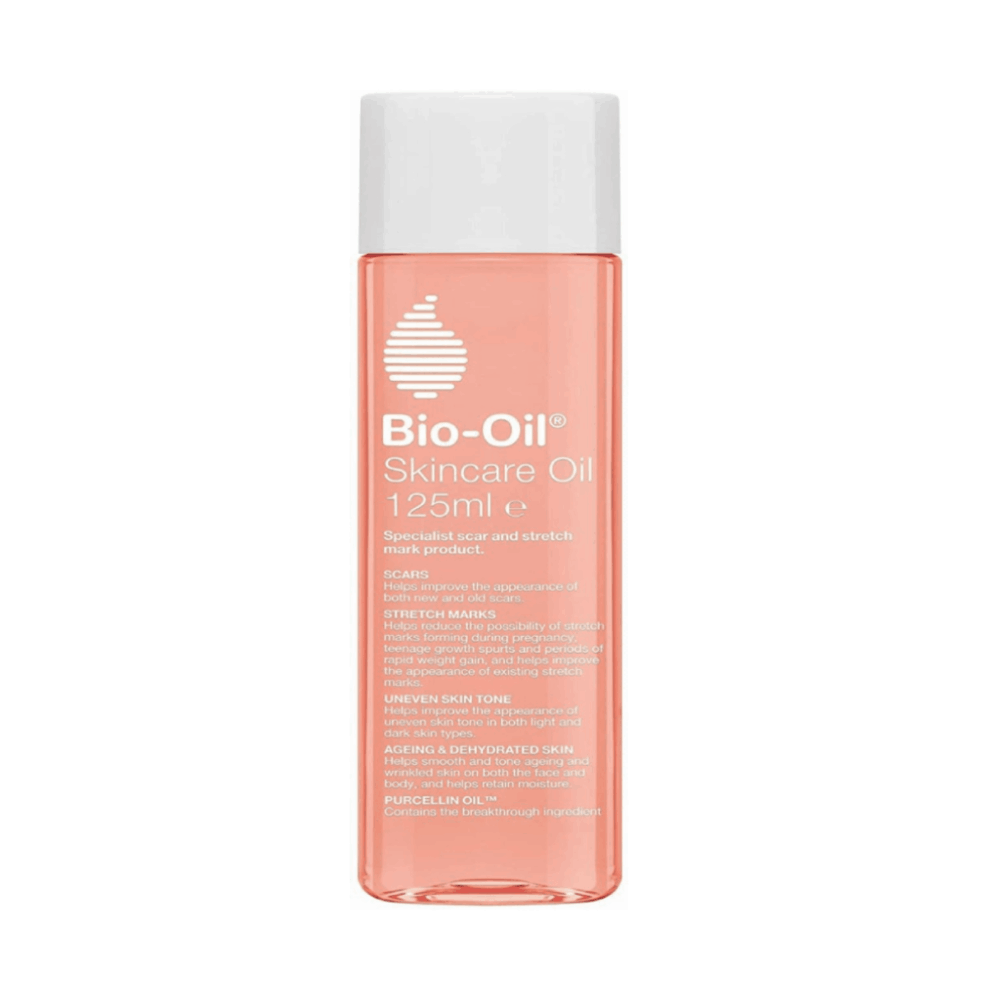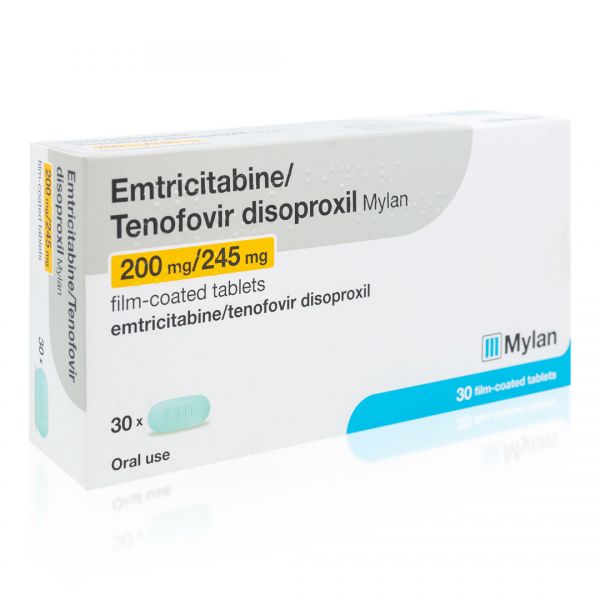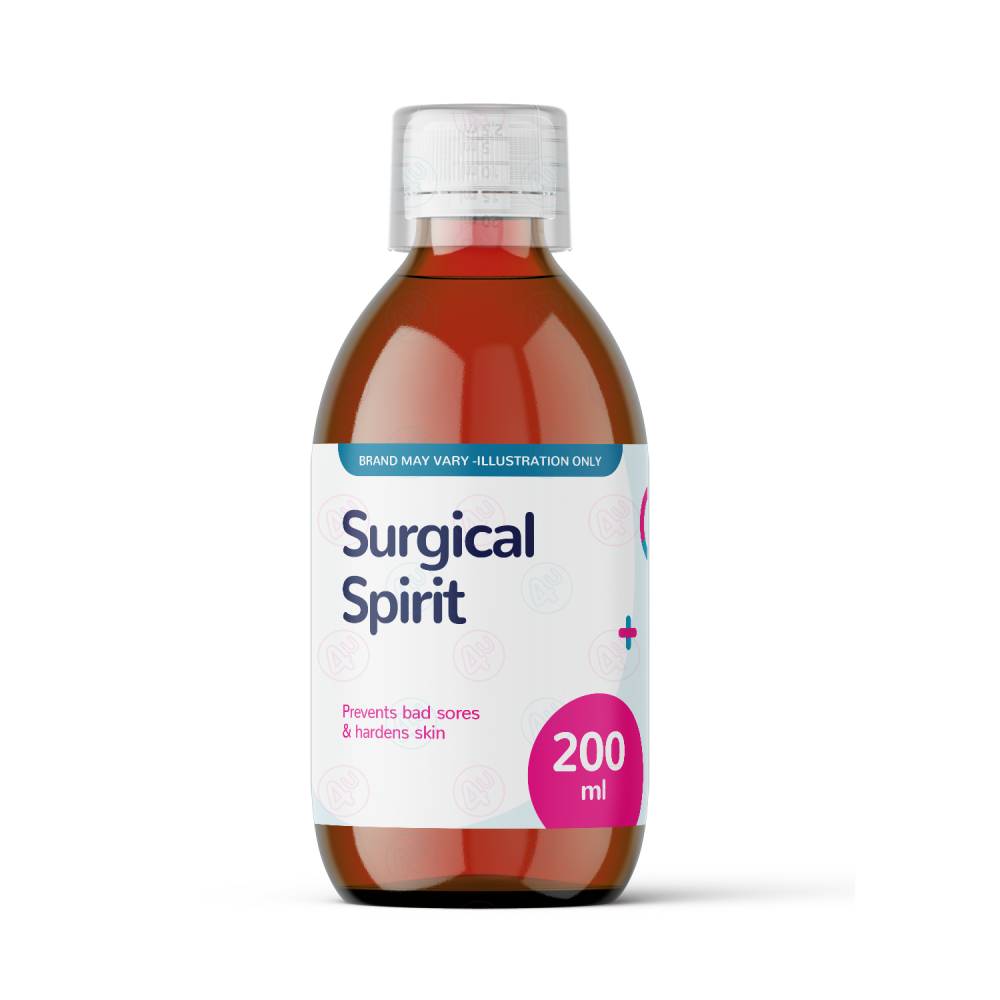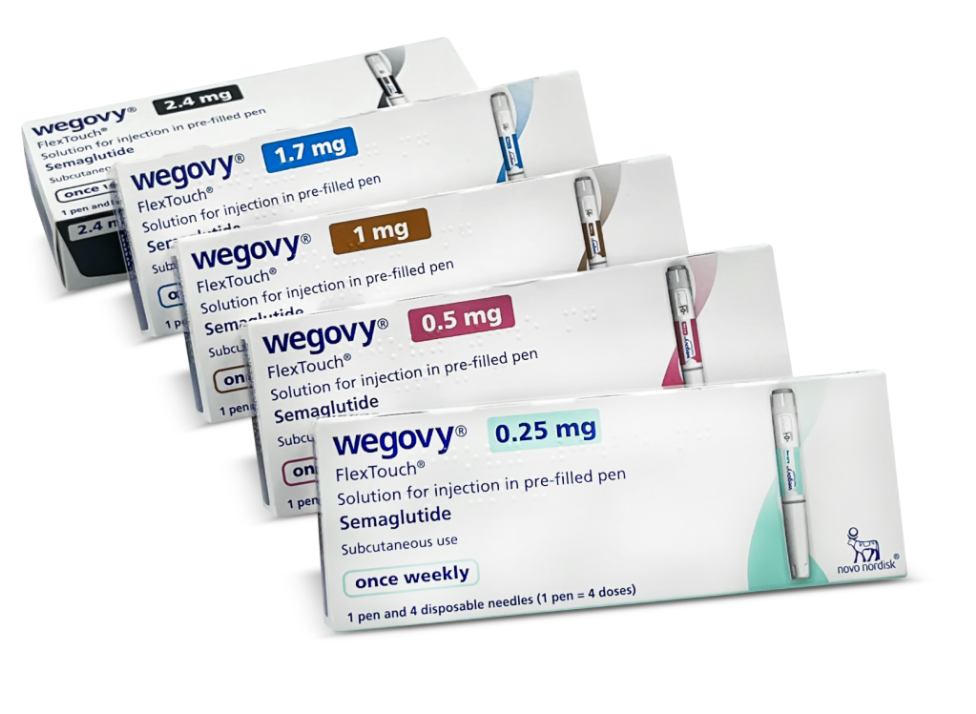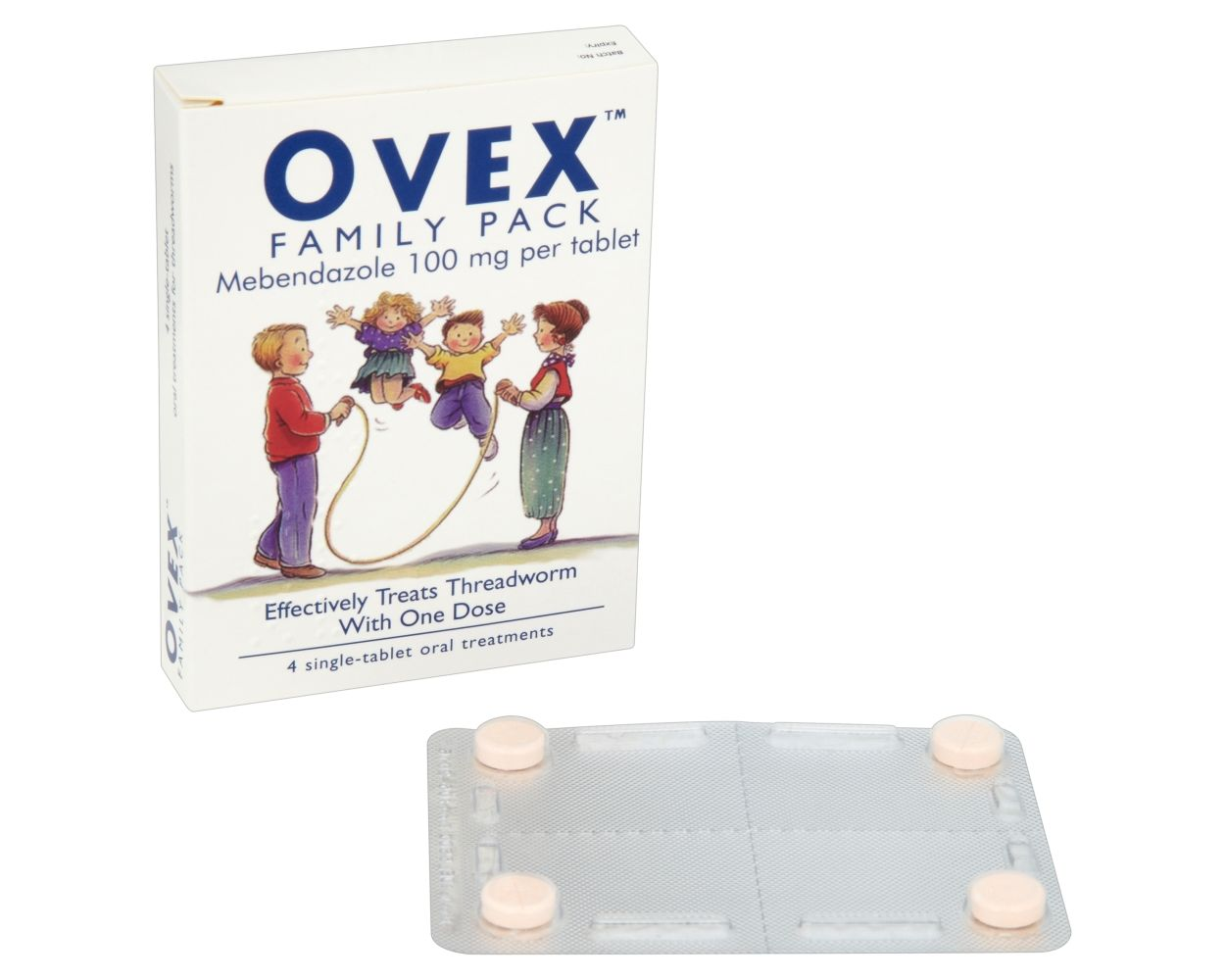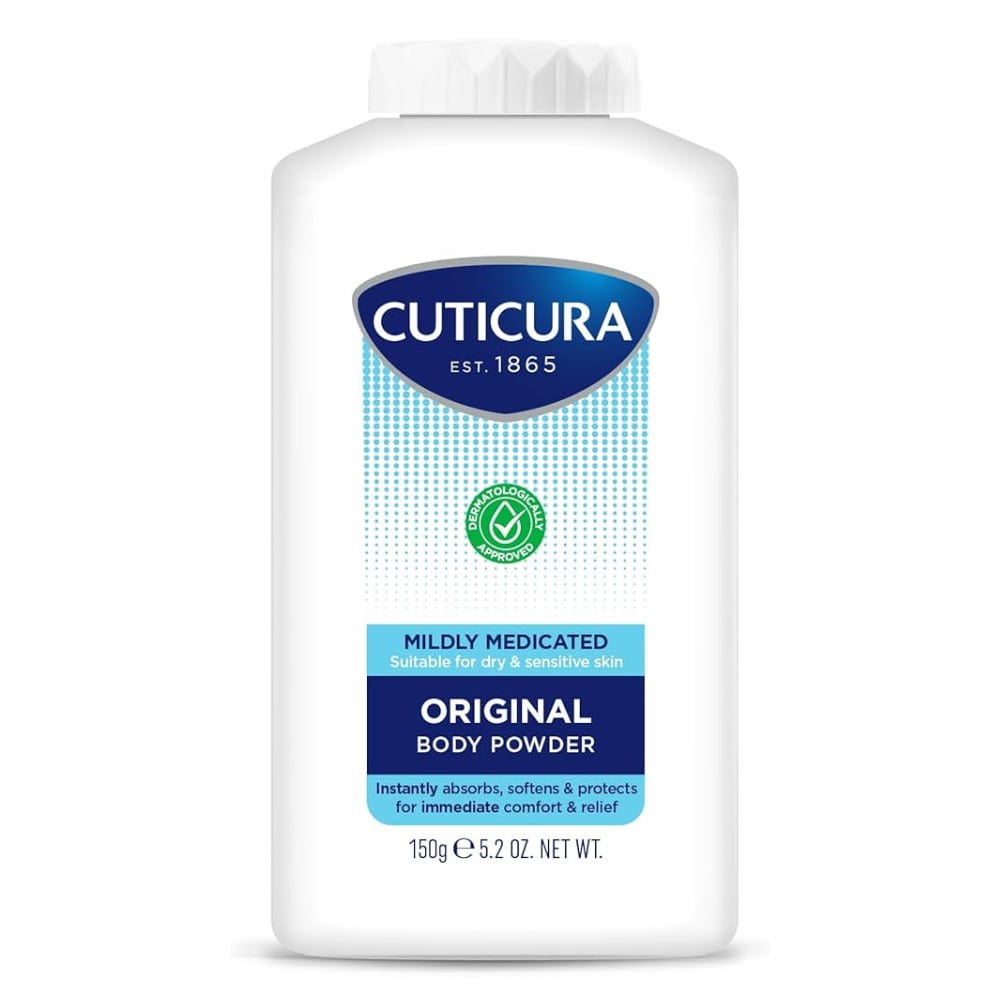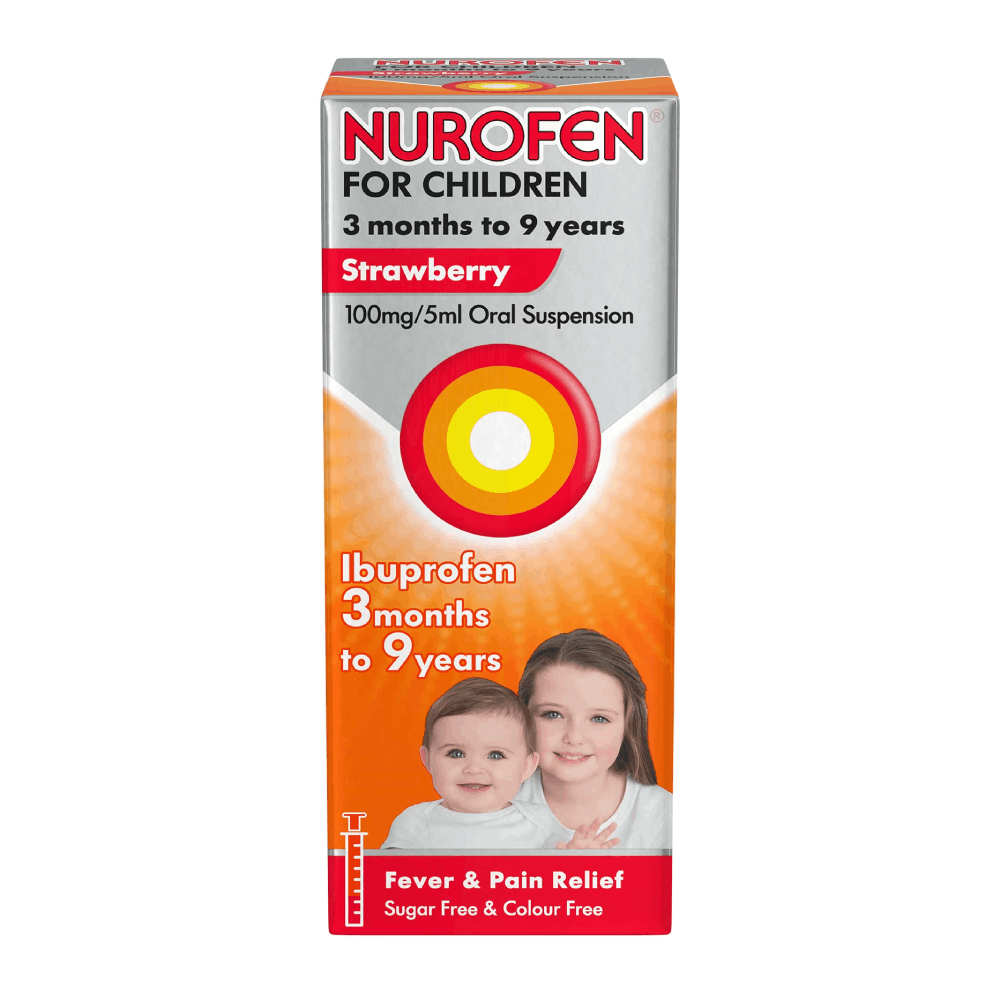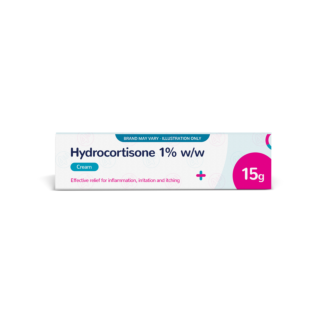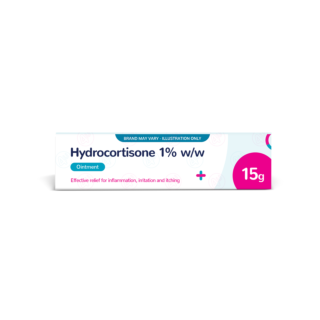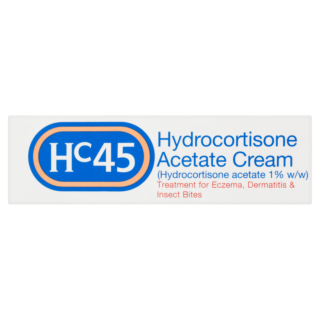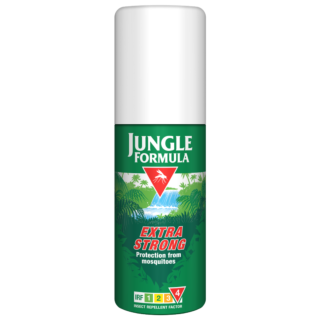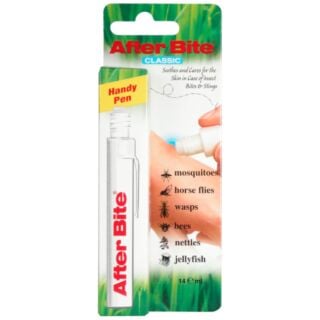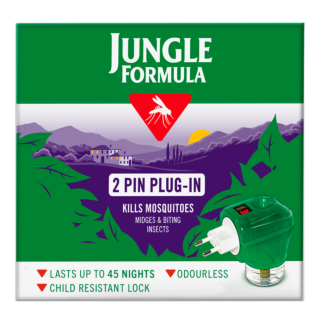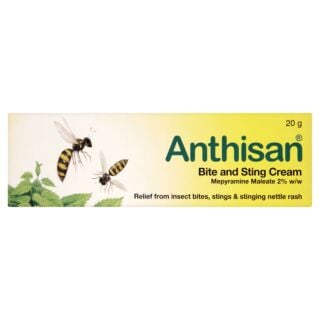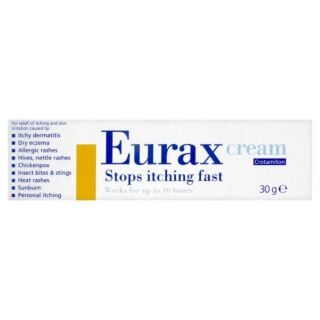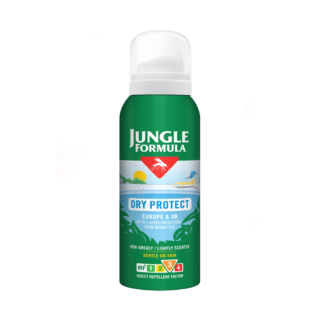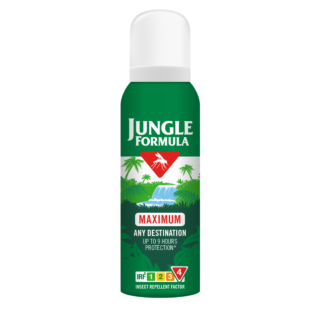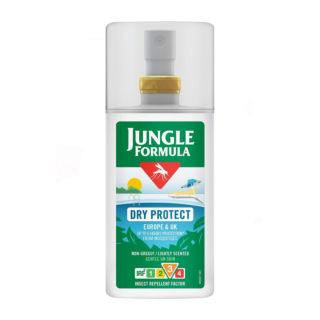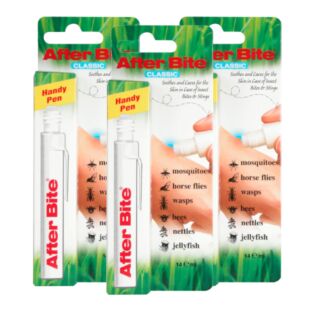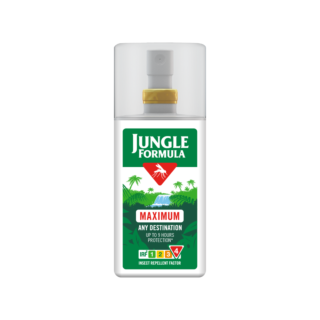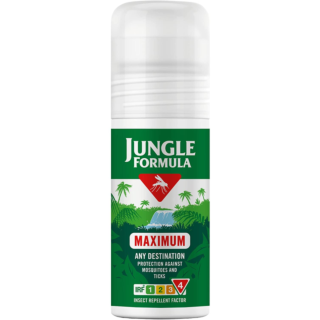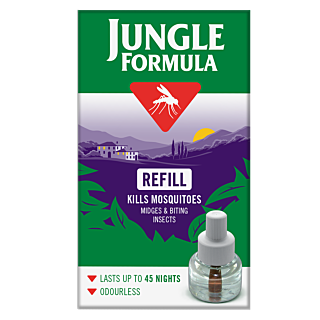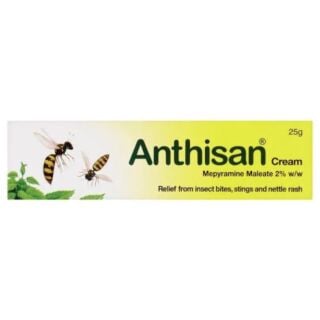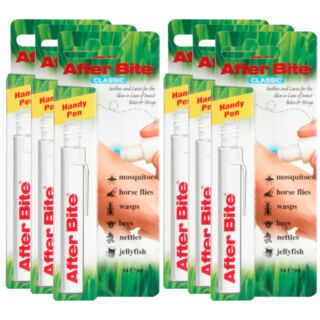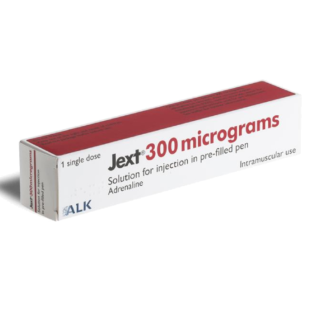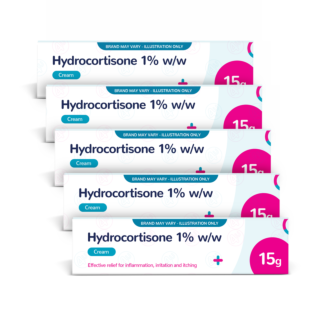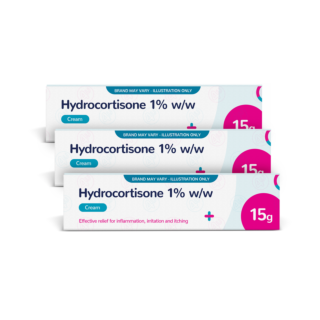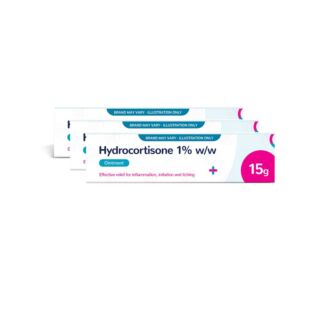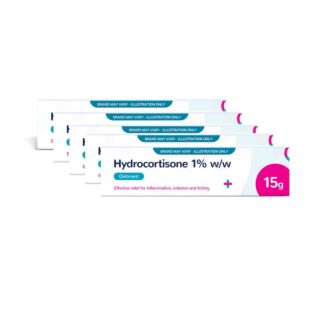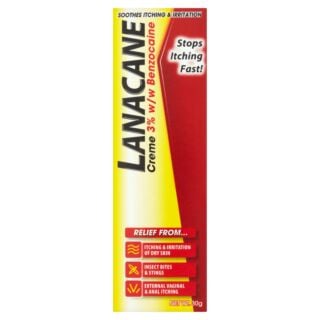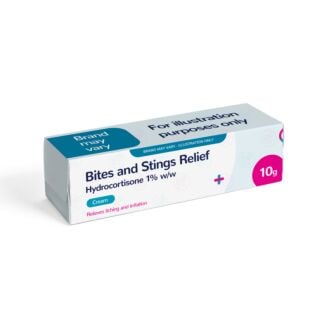Bites & Stings
Unfortunately, being bitten or stung by insects and bugs is often unavoidable if you want to enjoy the outdoors. Chances are you have been bitten or stung at some point, with up to 94% of people in the UK reporting they’ve been stung at least once in their life.1 … Read More See less
From the small but irritating bites you get when you’re enjoying the sunshine to potentially life-threatening complications, bites and stings can vary massively in terms of their severity. But how are you supposed to know how a bite or sting is going to affect you and whether you need to seek emergency care?
Let’s go through the different symptoms associated with stings, insect bites and treatments. In addition, well discuss the different types of bites and stings you can get, the best insect repellents and bug bites treatments, including insect bite creams.
What are bites and stings?
Bites
Some insects (e.g. mosquitos, bed bugs and fleas) bite using mouthparts that can pierce the skin.3 You may not notice these bites immediately. 3 Other insects (e.g. horseflies and midges) bite by cutting the skin and lapping the blood which pools in the wound. 3 These bites are usually painful and noticeable straight away. 3
Insects that bite inject substances via their saliva to help your blood flow more easily and prevent your blood from clotting.3 When their saliva enters your skin, your immune system recognises that a foreign substance is trying to invade your body and sends a chemical called histamine to the area of get rid of it.2 It’s this release of histamine that causes a bug bite to itch.2
Most of the time, your body’s reaction to an insect bite resolves within hours.3 Occasionally, however, it can persist.3 For example, if a tick has left mouthparts in your skin.3
Stings
Insects that sting (e.g. honeybees, bumblebees, wasps and hornets) do so by injecting venom from a stinger into the skin.3
Stings are usually immediately painful, as venom contains allergens (e.g. hyaluronidase and acid phosphatase) and other substances (e.g. histamine), which cause redness, mild localised pain and can even result in a severe allergic reaction (anaphylaxis).3 However, most insect stings cause a minor reaction which lasts from a few hours to several days.3
Types of bites and stings
Common types of bug bites include:2,4
- Ant bites
- Bed bugs bites
- Flea bites
- Fly bites (including those from black flies, horse flies, midges and mites)
- Mosquito bites
- Spider bites
- Tick bites
Common types of stings include:2,4
- Bee stings
- Wasp stings (including those from yellow jackets and hornets)
Symptoms of bites and stings
The symptoms you’ll experience depend on whether you’ve been bitten or stung and which type of insect is responsible.2
In general, you may have:2,5
- A small, raised bump on your skin which might be red or discoloured (you may have multiple bumps that form a line or cluster)
- Pain or discomfort where you were stung or bitten
- Itchy or irritated skin around the bite or sting
- Minor swelling around the bite or sting
Allergic reactions
Most allergic reactions to insect bites or stings are mild and localised.2 However, bites and stings can sometimes lead to anaphylaxis.2,3 If this occurs, it develops very quickly and can be life-threatening, so it’s important to know what the symptoms are.6
These include:6,7
- A swollen throat or tongue
- Having trouble breathing or breathing very fast
- Finding it difficult to swallow, feeling tight in your throat or having a hoarse voice
- Wheezing, coughing or loud breathing
- Feeling tired or confused
- Feeling faint, dizzy or falling unconscious
- A weak or rapid pulse
- Nausea, vomiting or diarrhoea
- Cold skin
- Blue, grey or pale skin, lips or tongue (if you have brown or black skin, this may be easier to see on the palms of your hands or soles of your feet)
Complications of bites and stings
Other than the risk of anaphylaxis, the main complications related to bug bites and stings are:8–10
- Systemic toxicity – when multiple bee or wasp stings cause hypotension, diarrhoea, vomiting, headache, and shock. This can be fatal in children
- Transmission of infectious diseases – for example, ticks can transmit lyme disease and mosquitos can transmit malaria
- Secondary bacterial infections –such as cellulitis and impetigo, due to bacteria on a biting insect’s mouthparts or scratching the bite
Why do insects bite and sting?
An insect may bite or sting you at any point, but spending time outdoors makes being bitten or stung much more likely.2
You may not be bitten or stung for any obvious reason, but it may be because you:2
- Step on a bug while walking barefoot
- Disturb an insect in some way
- Spend time in a forest, garden or overgrown field during high humidity
Risk factors for bites and stings
You’re more likely to encounter insects and get bitten if you:
- Live nearby a body of water, such as a lake, river, pond or marsh
- Spend a lot of time in forests or grassy areas
- Work outdoors or with animals or insects
How to treat bites and stings
The first thing to do if you have an insect bite or sting is to make sure that nothing is left on your skin:11
- If a stinger is left on your skin – brush or scrape it sideways with your fingernail or the edge of a bank card, then wash the area with soap and water
- If a tick is left on your skin – grab the tick as close to the skin as possible using tweezers or a tick-removal tool. Pull upwards, being careful not to leave the tick’s head or mouth in your skin, then dispose of it. Finally, clean the area with antiseptic soap and water
- If caterpillar hairs are left on your skin – gently remove the caterpillar using tweezers or a pen, being careful not to disturb it as it will release more hairs. Rinse your skin, allow it to air dry and then use sticky tape to remove any remaining hairs
Once there’s nothing left on your skin, there is no specific insect bite treatment you need to be aware of, but there are some things you can do to ease the symptoms:5,11
- Place an ice pack wrapped in a cloth on the bite or sting for at least 20 minutes to reduce swelling
- Keep the area raised if possible
- Take painkillers, such as paracetamol or ibuprofen, to minimise any pain
- Use antihistamines, or a bug bite cream that contains antihistamines, to relieve any itching
- Use hydrocortisone cream to reduce itching and swelling
- Do not scratch the bite or sting, as this could cause an infection
How to prevent bites and stings
If you’re spending lots of time outdoors, you can try to prevent bites and stings by:5
- Wearing long sleeved clothing and shoes to cover your skin
- Using bug repellents or mosquito repellents
- Keeping any food covered
- Avoiding using strong perfumes that can attract insects
- Avoiding camping near lochs or rivers
- Staying calm around wasps, hornets or bees
You can also keep your windows closed to stop insects getting indoors.5
How to manage an infestation
If you have been bitten by fleas, mites or bed bugs, you may have an infestation in your home.5 If this is the case, it’s important to deal with it quickly and effectively, by:5,12
- Getting your pet treated for fleas
- Treating your bedding, carpets and soft furnishings with insecticide
- Vacuuming your carpets and soft furnishings
- Washing your bedding on a high heat (60°C)
- Contacting a professional pest control service
Sources
- https://cks.nice.org.uk/topics/insect-bites-stings/background-information/prevalence/
- https://my.clevelandclinic.org/health/diseases/bug-bites
- https://cks.nice.org.uk/topics/insect-bites-stings/background-information/definition/
- https://111.wales.nhs.uk/encyclopaedia/i/article/insectbitesandstings/
- https://www.nhsinform.scot/illnesses-and-conditions/injuries/skin-injuries/bites-and-stings#:~:text=How%20to%20prevent%20bites%20and,camping%20near%20lochs%20or%20rivers
- https://www.nhs.uk/conditions/anaphylaxis/
- https://www.mayoclinic.org/first-aid/first-aid-insect-bites/basics/art-20056593
- https://cks.nice.org.uk/topics/insect-bites-stings/background-information/complications/
- https://www.nice.org.uk/guidance/ng182/resources/insect-bites-and-stings-antimicrobial-prescribing-pdf-66142018322629
- https://www.nhs.uk/conditions/malaria/
- https://www.nhs.uk/conditions/insect-bites-and-stings/
- https://bpca.org.uk/pest-aware/page-5/bed-bugs-control-how-to-get-rid-of-bed-bugs-bpca-a-z-of-pests/189186

Free delivery when you spend over £39

100% discreet delivery for every item ordered

Fully regulated UK pharmacy
What is the best cream for insect bites and stings?
Insect bite creams typically contain a type of medicine called an antihistamine, which works by blocking a substance called histamine that is produced during an allergic reaction.
You can also try hydrocortisone cream, a topical treatment that is classed as a corticosteroid and works to relieve pain and swelling.
If your bite is infected, you will need to see a doctor so they can prescribe a suitable antibiotic to treat the infection.
Will an antihistamine tablet work for insect bites?
When you get an insect bite or sting it can sometimes become itchy and swollen because your body has a similar reaction to the bite as it would to an allergen.
Antihistamines can help to reduce the itching and swelling in some cases, making it easier for you to refrain from scratching and give your skin space to heal.
This is why some insect bite creams contain antihistamines as their active ingredient.
In most cases, bites and stings will be minor enough that they won’t need treatment and will go away by themselves, but if you’re ever concerned about yours you should speak to your doctor or pharmacist right away.
They’ll be able to take a look at the area and recommend treatment if it’s necessary.

